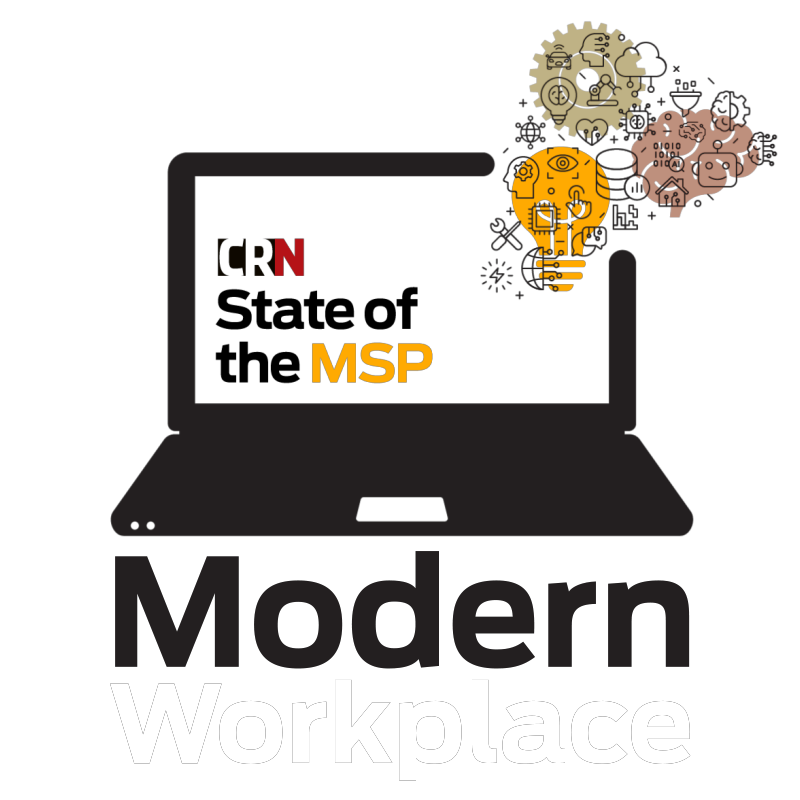

For many employers and employees, the pandemic resulted in rushed, unplanned workplace arrangements and technology deployments. Now organisations are continuing to settle into hybrid work as a permanent arrangement and they are looking closer at everything from technology to productivity and working hours.
In the video and article below, we explore some of the ramifications for managed service providers (MSPs).
From WFH to work-from-anywhere

One of the immediate priorities when workforces returned to offices for the long term was retrofitting their workplaces. That work continues, but the focus has shifted from enabling work-from-home to work-from-anywhere, said Logicalis Australia CEO Anthony Woodward.
“What's now becoming more of a focus is making sure that all the applications that people need to work…are available and the data that they're dealing with is secure from all of those locations…not just the home office but on the road or at a customer site or wherever else,” Woodward noted.
“That obviously goes to networking capability, it goes to security, it goes to probably moving to more applications being hosted in the cloud, or at least centrally so that they're available to everybody.”
This has resulted in renewed attention to security.
“Obviously, over the last six or so months, probably nine [months], there's been a very, very strong focus on security,” Woodward pointed out. “One of the reasons for that has been folks catching up… they sort of made a lot of parts of their applications and tooling available remotely, in a really big hurry in some cases, and they needed to go back and retrofit the right security models around that to make sure they're well protected.”
Woodward also saw plenty of work on business processes.
“Perhaps there's three or five, or sometimes 10 or even 20 applications to do a single business process,” he observed. “And does that provide opportunity to innovate the process and then also think about the tooling that's used to deliver that process, both from digitising the steps and also automating some of those steps as well.”
Non-technical lessons

MSPs with extensive hybrid work experience are using that to their advantage. These companies include ServiceRocket, an Australian-founded, US-headquartered Atlassian and NetSuite managed services partner.
ServiceRocket founder and CRO Rob Castaneda shared his experience with CRN Australia. “If I go back to what we did with Atlassian from the beginning – we used their technology to build our business and they would refer people to us so we could show them what we did with Atlassian products.”
With hybrid work, Castaneda has seen “the same pattern repeating, where we built and modelled our business to be effective and then we take those lessons and patterns and we share them with our customers.”
“Because we run in 12 countries and 400 people, it's a good sizeable model that deals with most of the issues that other companies have,” Castaneda said.
Non-technical aspects of hybrid work have become an increasingly important focus for ServiceRocket, said Castaneda.
“What we started to understand was that the game has really changed... We invested a lot in cultural elements and leadership behaviours, leadership training, mental skills development, which we had actually started before the pandemic, and models of the business so that people could explain them and they could see where they fit, and then the technology supported that,” he said.
“I think a lot of companies get into the situation where technology just comes in and they just think it's a technology issue and a sale, and they can do a stroke of the pen and kind of change the way the organisation is. And I think in a crisis that worked, right? ‘Hey, we're adaptable. We can be remote.’ But the weighting of perception on an employee to reality… is under underappreciated. If someone thinks something is not fair, it doesn't matter how big it is or how small it is, their productivity will plummet.”
The focus at ServiceRocket has been “rebuild the company from the ground up to make sure that we have a psychologically safe space for every Rocketeer to know that everything is fair. And that's an interesting thing to try and achieve because what it had us do is rebuild our compensation structure from the ground up.”
“So, a lot of companies run on values, and then we created what we call leadership behaviours on top of values that help guide what we're doing. We restructured our comp and benefit structure so that things are consistent across the world as we open up locations or have different locations. And then the technology kind of supported what we were doing,” Castaneda said.
Offshore pitch

Castaneda also talked up ServiceRocket’s international presence.
“When I buy something from ServiceRocket, we're also going to get a global view that's based in Silicon Valley, but is Australian. There are no other channel companies in Australia that have operations, let alone headquarters, in Silicon Valley. We were able to put one foot on either side of the Pacific."
“So, we’re able to work with product teams. If we look at meta, it's like 10 minutes from our office. And so all the different partners that we work with, we're able to actually meet now face-to-face.”
Combining human and technical
CIOs are also being encouraged to balance human issues with technology. “Digital transformation by work, essentially it's about decoupling a business from its analogue, physical limitations,” said Neha Kumar, senior director, Gartner CIO Advisory. “The same can be said of our workforce and our workplace as well.”
“The leaders that are doing well are actually digitising their workforce, digitising their workplace in a way that they're able to support the employee preferences as well as their business expectations.”
MSP Champions
The CRN State of MSP Champions — NinjaOne and Pure Storage — work with MSPs to ensure IT buyers receive the most appropriate solutions and the highest service levels.
Watch their comments below about how MSPs can continue to thrive in the year ahead.









